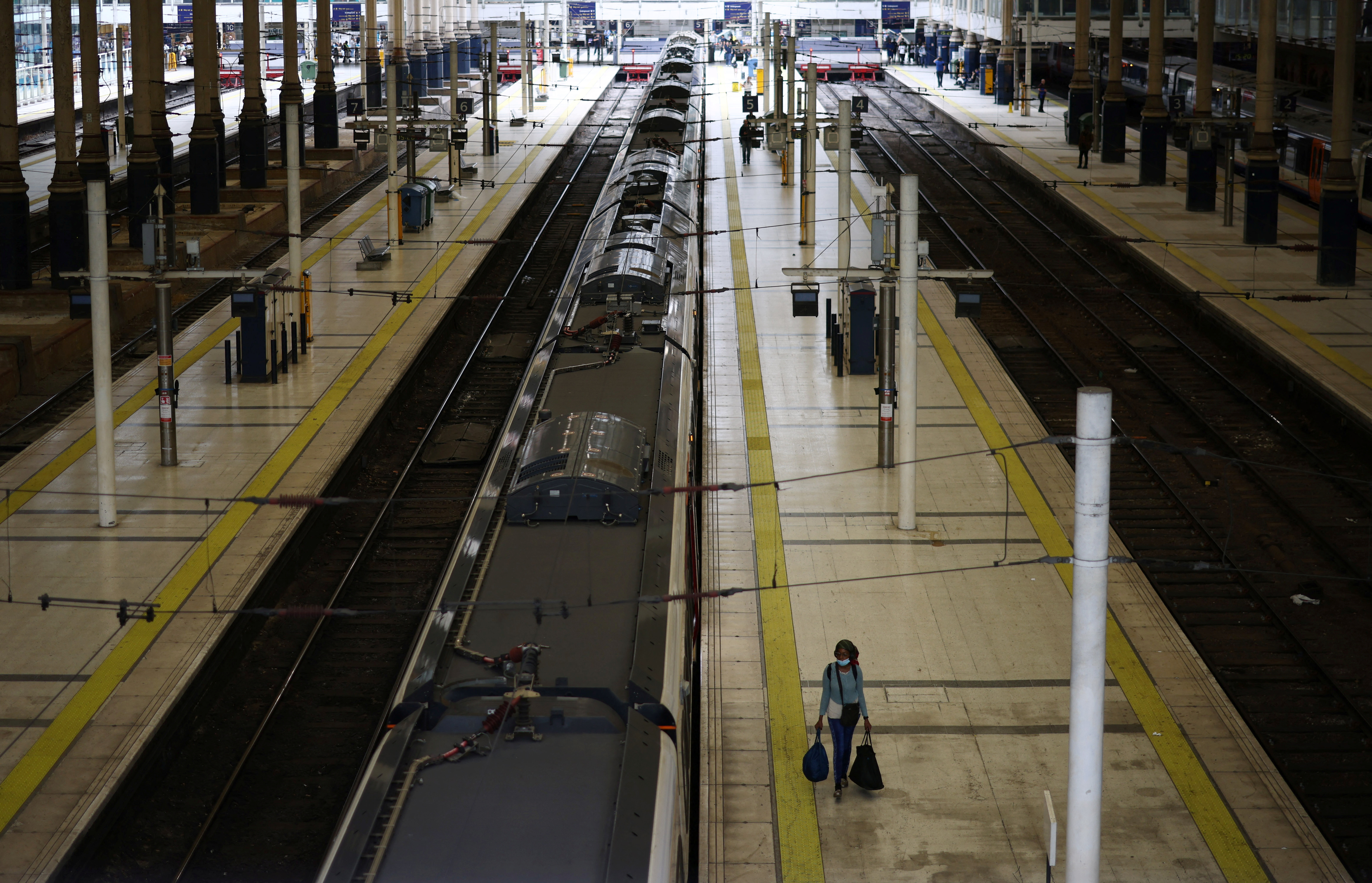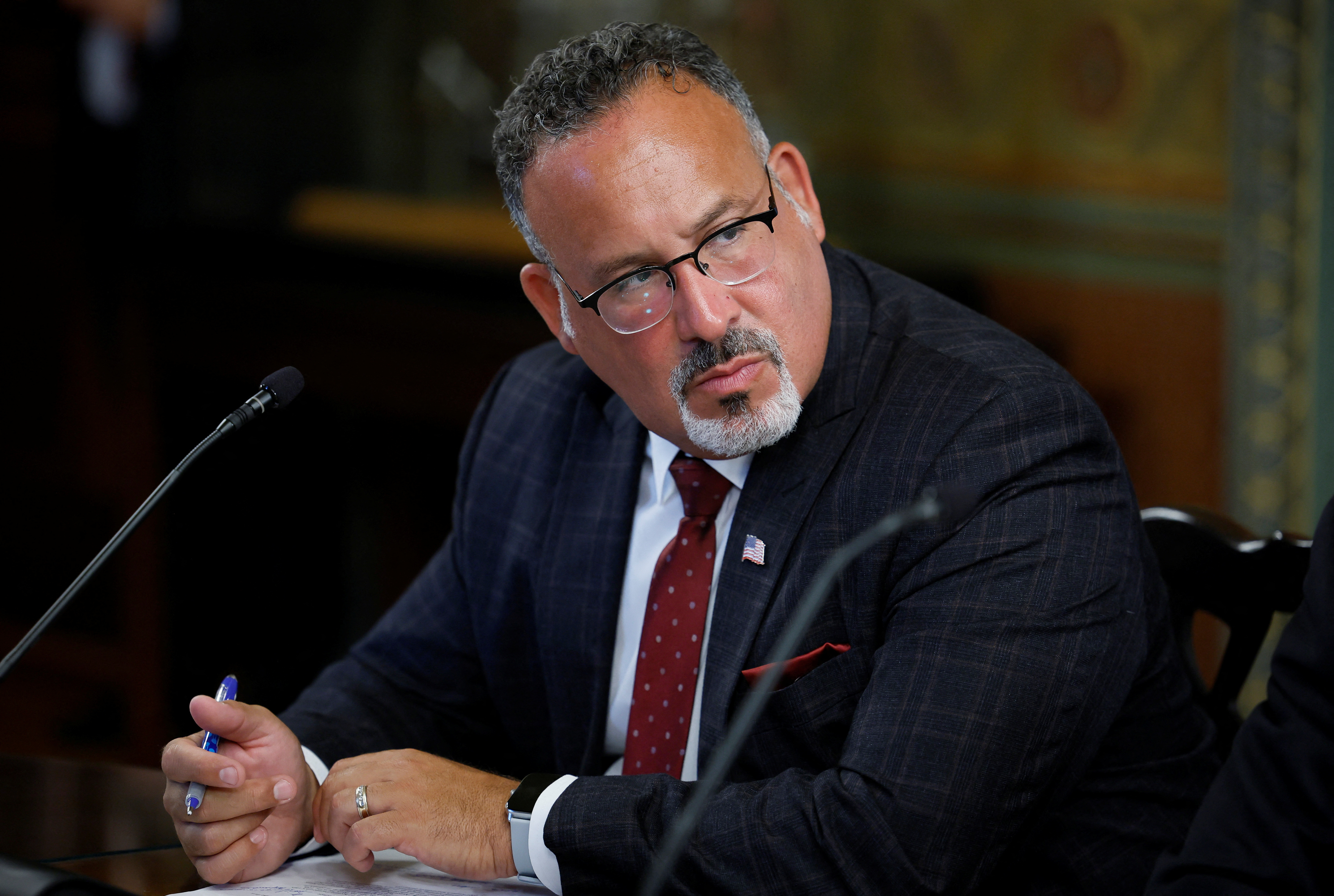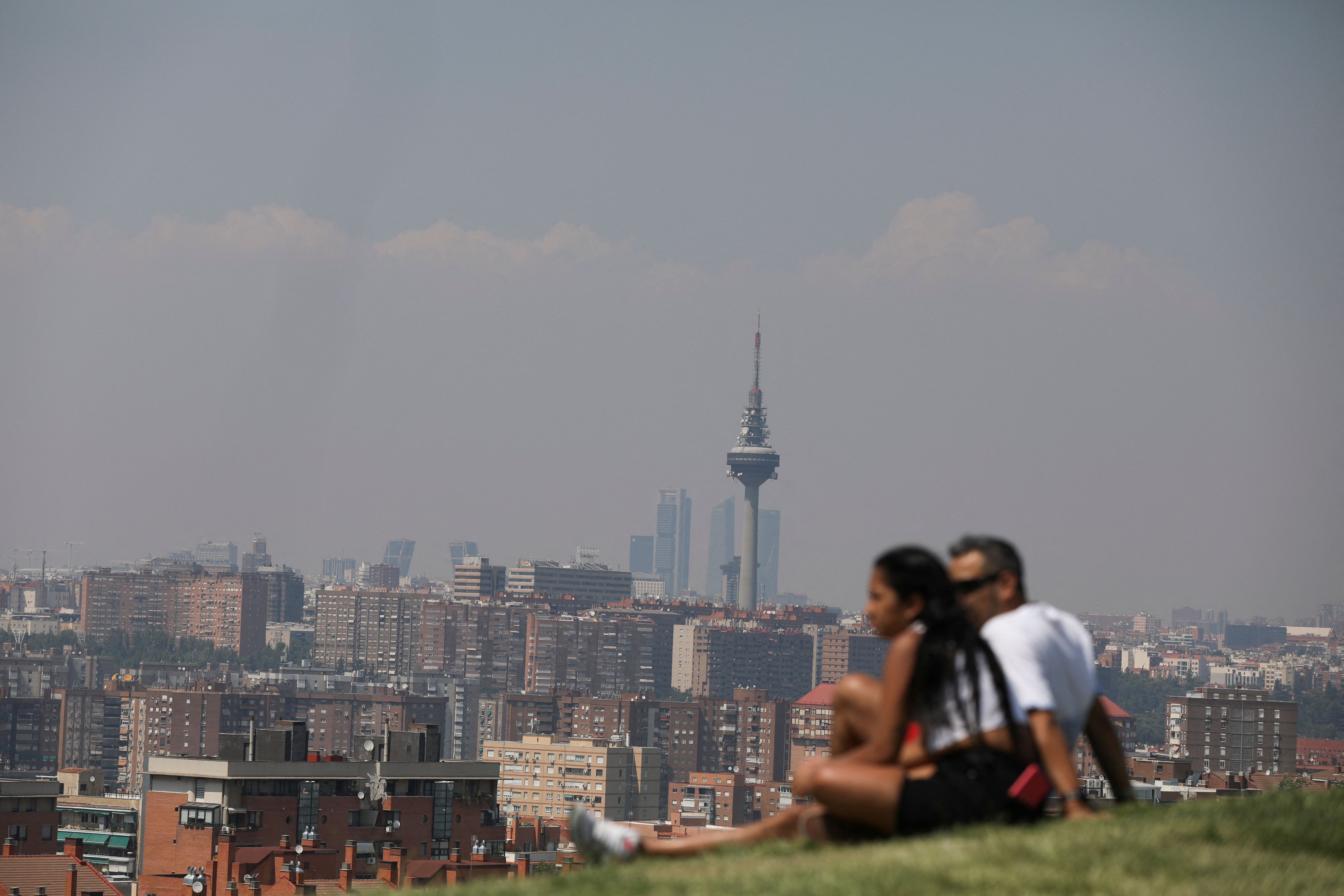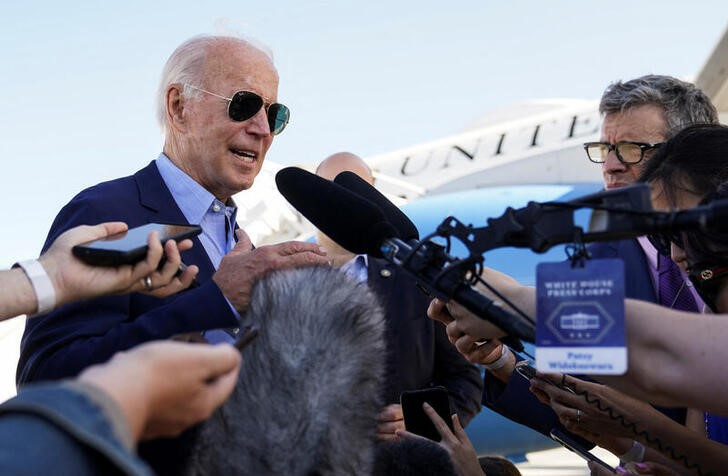Factbox: UK workers' industrial action as cost of living crisis bites
Reuters


A view of trains on the platform at Waterloo Station as a station worker stands nearby, on the first day of national rail strike in London, Britain, June 21, 2022. REUTERS/Henry Nicholls
Aug 16 (Reuters) - Britain faces months of disruption as workers across the economy struggling with the rising cost of living resort to strike action in disputes over pay and conditions. read more
Below are some of the industries in which trade unions have undertaken or threatened strike action:
RAILWAYS
Large sections of Britain's rail network have been repeatedly brought to a standstill over recent weeks.
Members of the National Union of Rail, Maritime and Transport Workers (RMT) and The Transport Salaried Staffs' Association (TSSA) have announced strike action on Aug. 18 and 20, following previous walkouts that have failed to resolve disagreements over pay and conditions.
Unite union said its members at Network Rail - which owns and maintains train infrastructure - would join other rail unions in striking on Aug. 18 and 20.
Train drivers at several British rail companies represented by the ASLEF union also walked out on July 30 and Aug. 13.
London Underground workers represented by the RMT are due to strike on Aug. 19, their fifth 24-hour walkout this year.
COURTS
British lawyers involved in criminal trials have staged several walkouts in a dispute over government funding, refusing to take on new cases or cover cases for colleagues that have overrun. They plan to hold further strike days over the coming weeks.
SCHOOLS
The NASUWT Teachers' Union had previously said it would ballot members for industrial action in November if their pay award falls short of their 12% increase demand.
After the government announced pay rises of between 5% and 8.9% for teachers, the union called on ministers to commit to negotiations.
HOSPITALS
The Royal College of Nursing has said hundreds of thousands of nurses in England and Wales will vote in September on whether to strike after the government announced below-inflation pay rises.
The British Medical Association (BMA), which represents doctors, has said it will ballot junior doctors for possible industrial action because those in England are ineligible for a 4.5% pay increase for some doctors announced by the government.
It has also said other groups of doctors it represents will consider their next steps, warning it is "on a collision course with the government".
AIRPORTS
British Airways' check-in and ground staff at London's Heathrow airport suspended a planned strike that had threatened disruption at one of Europe's busiest aviation hubs after the airline agreed to improve pay.
The Unite union said a strike by refuellers at Britain's busiest airport Heathrow, which was set to begin on July 21, was suspended after the employees received a revised offer.
TELECOMS
More than 40,000 workers for telecoms company BT Group (BT.L) held a national strike over pay on July 29 and Aug. 1, their first such action in 35 years.
The Communication Workers Union has served notice on BT and Openreach that its members will hold a further two-day strike on Aug. 30 and 31.
POSTAL SERVICES
Workers at the Post Office will carry out a fourth round of industrial action on Aug. 26, which coincides with a walkout by some staff at Royal Mail (RMG.L).
More than 115,000 postal workers at Royal Mail have voted to strike on four dates in August and September over pay.
A separate planned strike by 2,400 Royal Mail managers represented by the Unite union, due to take place July 20-22, was suspended after workers voted in favour of returning to negotiations.
PORTS
More than 1,900 workers at Britain's biggest container port, Felixstowe, plan eight days of strikes on Aug 21-29 in a dispute over pay, threatening severe disruption to international maritime trade.
Hundreds of dockworkers at the Port of Liverpool, one of the largest container ports in the country, have also voted in favour of strike action over pay and conditions.
PUBLISHING
Staff working at publisher Reach, whose titles include the Daily Mirror and Daily Express, have voted to stage a four day strike on Aug. 26, Aug. 31, Sep. 15 and Sept. 16, over pay, the National Union of Journalists (NUJ) said.
Journalists at Reach and a second newspaper group in Scotland have also agreed to strike following separate disputes over redundancies and pay.
BUSES
More than 1,600 London bus drivers are due to walkout on Aug. 19 and Aug. 20 in a dispute over pay that will coincide with a strike on the London Underground and an overground train strike.
Arriva bus workers in various cities around the country have been taking part in strikes in a row over pay, with further staff in other areas also being balloted for industrial action.
EMERGENCY SERVICES
The Fire Brigades Union has rejected a proposed 2% pay increase and said it is preparing for strike action.
BINS
Bin workers in various areas around the country have either already undertaken or threatened strike action, disrupting waste collections.
Compiled by Kylie MacLellan and Farouq Suleiman; editing by David Evans, Nick Macfie and Barbara Lewis
















